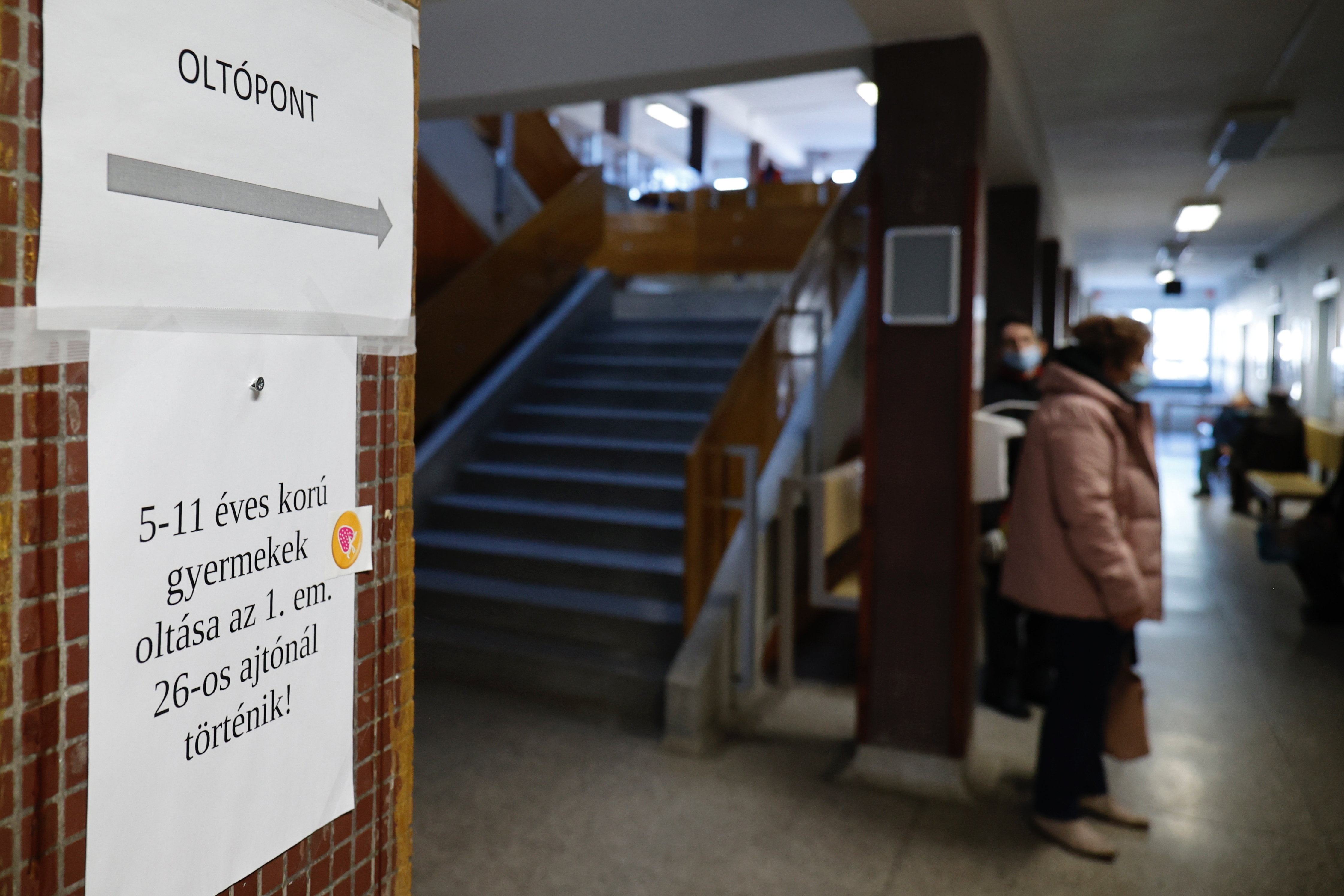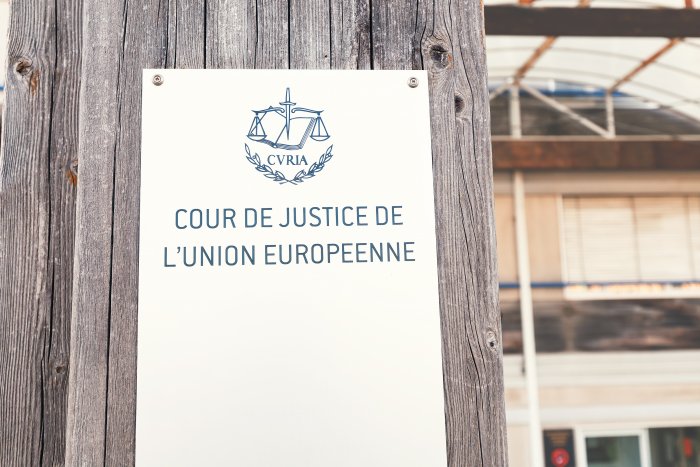Immunity Certificates Extended as Wastewater Levels Stagnate

A sign on a door at the Dorottya Hospital in Nagykanizsa (215 km southwest of Budapest by road) on Feb. 22 points the way to a vaccination point. The text below the arrow directs children aged 5-11 years to the first floor.
Photo by György Varga / MTI.
Hungary’s government has pushed back the date for restricting COVID immunity certificate validity for the fully inoculated from Feb. 15 to May 1 in a decree published in the official Magyar Közlöny [Hungarian Gazette], according to state news agency MTI.
Under the new government decree, the certificates will only be valid for the double-jabbed for six months after receiving the second dose, following which validity will require a booster shot. Hungarians who have recovered from COVID but have not been vaccinated will no longer be eligible for the immunity certificates.
In the same issue of Magyar Közlöny, Hungary’s government enacted a decree enabling retailers that aren’t licensed pharmacies to sell COVID antigen rapid diagnostic tests, according to koronavirus.gov.hu. The measure is in line with European Union rules on COVID rapid tests, the decree noted.
Hungary’s Competition Office (GVH) had issued a recommendation two weeks prior on expanding the availability of rapid COVID tests to a broader range of retailers. GVH also said it could propose a price cap on the tests if competition in the retail market doesn’t intensify and bring prices down.
Domestically, concentrations of coronavirus hereditary material in wastewater continue to stagnate, the National Center for Public Health (NNK) said on its Facebook page on Feb. 15. According to the latest data, the concentration of material has still not changed as a national average, as there was no significant increase or decrease in any of the cities surveyed. Despite this plateauing, NNK warned that the concentration of the virus could still be classified as “elevated” everywhere.
Several recent studies have taken stock of some of the challenges faced during the coronavirus pandemic. For instance, some 54% of domestic companies said they found it more difficult to comply with ethical operations during the crisis, despite these being important to nine out of ten of those companies, according to a global survey by EY.
Critical Decisions
In Hungary, more than three-quarters of companies say they take into account the impact of critical business decisions on the organization’s reputation (78%) and whether they comply with current legislation (72%).
Additionally, a recent study by researchers at the Faculty of Pedagogy and Psychology (PPK) of the Eötvös Loránd University found that men were the least respectful of lockdown conditions during the early days of the epidemic in 95% of the countries surveyed.
In their study, researchers revealed from a sample of 41 countries that men were less likely to consider distance rules based on gender, age, income, and education. Experts believe the data could be used in public health communications about COVID-19, according to a report on the university’s website.
Meanwhile, Hungary continues to maintain a vaccine surplus, having received another two shipments of the Pfizer-BioNTech coronavirus vaccine for children aged five to 11, each consisting of 36,000 doses on Feb. 15 and 22. In a video message posted on Facebook earlier, Minister of Foreign Affairs and Trade Péter Szijjártó had blamed “political reasons” for the lack of acceptance, at the global level, of coronavirus vaccines produced in China and Russia, arguing that they “meet all requirements for efficacy and safety.”
Later, Szijjártó said in another video message posted on Facebook that Hungary would be donating a further 120 ventilators to Ukraine. Szijjártó said half of these would go to hospitals in Transcarpathia, an area of Ukraine with a large ethnic Hungarian population.
This article was first published in the Budapest Business Journal print issue of February 25, 2022.
SUPPORT THE BUDAPEST BUSINESS JOURNAL
Producing journalism that is worthy of the name is a costly business. For 27 years, the publishers, editors and reporters of the Budapest Business Journal have striven to bring you business news that works, information that you can trust, that is factual, accurate and presented without fear or favor.
Newspaper organizations across the globe have struggled to find a business model that allows them to continue to excel, without compromising their ability to perform. Most recently, some have experimented with the idea of involving their most important stakeholders, their readers.
We would like to offer that same opportunity to our readers. We would like to invite you to help us deliver the quality business journalism you require. Hit our Support the BBJ button and you can choose the how much and how often you send us your contributions.








